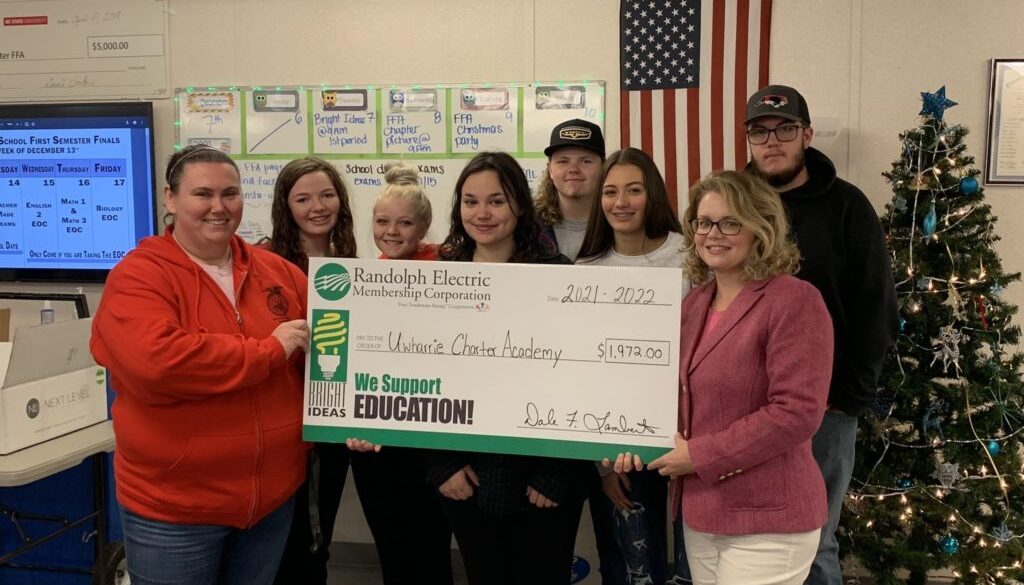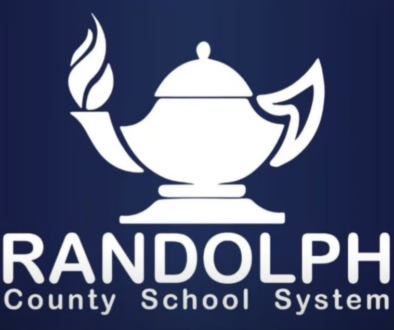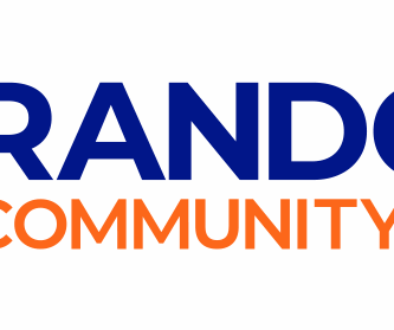REMC awards $14,000 to teachers for ‘Bright Ideas’
ASHEBORO — Randolph Electric Membership Corporation recently honored educators by awarding $14,000 in Bright Ideas education grants to twelve local educators.
“Randolph EMC is committed to making our communities stronger. One way we accomplish that is by investing in education,” said Nicole Arnold, Communications and Public Affairs Manager for REMC. “For almost 30 years, Randolph Electric has provided grants to local schools. We commend these educators for continually striving to create classrooms conducive to innovation.”
Bright Ideas grants, sponsored by Randolph EMC and North Carolina’s electric cooperatives, are available to teachers for hands-on projects that would not otherwise be funded. The awards have been around since 1994 and the electric cooperatives have awarded more than $13.6 million for nearly 13,000 projects. Randolph Electric has invested almost $300,000 in grants within its five-county service area since the program’s founding.
“Thank you very much to Randolph EMC for continuing to support our schools through the Bright Ideas grant,” said Uwharrie Charter Academy High School Principal Beth Kearns. “Through the years, Randolph EMC has provided money to buy materials that help make learning engaging and relevant for our students.”
Randolph Electric said in a release that they received more applicants this year than any prior year. The applications were reviewed by a panel of educators from area elementary, middle and high schools before the final award were made. The reviewers did not know the names or schools of the applicants to ensure impartiality.
The 2021 grants will facilitate projects that positively impact 1,760 students.
In Randolph County, the winners were:
-
- Jessica Hoffmire of Uwharrie Charter Academy Elementary School in Asheboro won $482 for her project, Winged Warriors. Students in kindergarten through third grade will learn about the life cycles of butterflies and their need for host plants. They will raise Monarch and Eastern Swallowtail butterflies and grow host plants in biodegradable pots. The goal is to promote environmental awareness and a connection to the natural world.
-
- Amy Austin of Uwharrie Charter Academy Middle School won $1,439 to build an Interactive Periodic Table. Eighth-grade science students will handle physical elements, observe samples, and sort magnetic tiles on the periodic table board. The students will arrange the tiles according to certain characteristics in order to see patterns and similarities that exist within the groups of elements.
-
- Cynthia Neal of Southwest Randolph Middle School won $427 for her project, Tomato-sphere. Seventh-grade science students will grow tomato plants from seeds and employ the Scientific Method to make observations and maintain data which they will send to NASA. One group of seeds originating from the International Space Station will provide this experiment with especially interesting results.
-
- Marley Knapp of Uwharrie Charter Academy Elementary School won $1,890 for an interdisciplinary project called Making Waves for the Environment. Fourth-grade students exploring Earth History and Ecosystems will gain an understanding of how human habits can degrade an environment through erosion. Through Sphero Robotics, student will generate waves and then measure the amount of erosion that occurs. After discussing the impact on shorelines, students will explore designs that minimize erosion.
-
- Colonel Ashley Worboys of Providence Grove High School in Climax, NC, won $750 for a Junior Reserve Officer Training Corps (ROTC) Robotics Game. Junior ROTC cadets will immerse themselves in science, technology, engineering and math while building robots for regional and national competitions. The goals are to foster better problem-solving skills and to see a project through to completion.
-
- Chrissy Neelon of Uwharrie Charter Academy High School won $1,772 for a project called “Art has to be Seen to be Appreciated.” Students in Beginning Art, Graphic Design, Comic Art, and Advanced Placement visual art classes will be able to print their digital art creations, including photographs, digital designs and digital drawings. The exhibition of these artworks will encourage a deeper understanding of their art as well as improve technical skills essential for competitiveness in today’s digitally dependent landscape.
-
- June Allison of Randleman High School won $651 for Full Circle Gardening. Students with moderate to severe intellectual disabilities will germinate seeds, prepare a raised garden bed, and grow vegetables and herbs. The students will plant, weed, harvest, cook and eat the produce grown in the garden.
-
- Dr. Amanda Whatley of Uwharrie Charter Academy High School won $1,349 for a project called The Storytelling of Science. High school students will get incorporate interdisciplinary learning into their English curriculum by collecting field notes and compiling data from agricultural experiments. The students will then use the collected data to formulate environmental impact statements.
-
- Elizabeth Farmer of Uwharrie Charter Academy High School won $1,972 for Reality-Works in the Classroom, a hands-on curriculum for students in agriculture classes. Students will learn real-world animal science and veterinary skills including tail docking and ear notching.
-
- Christy Darr Weist of Hopewell Elementary School won $270 for STEM bins. Second and third-grade students will explore collaboratively to come up with solutions to problems introduced by bin materials. The hands-on activities will spur critical thinking skills and promote group communication.
-
- Ryan Gibbs of North Asheboro Middle School won $1,000 to build a recording studio. Students in sixth, seventh and eighth grade will use the studio to create, edit and publish videos and podcasts on topics in engineering and biotechnology. They will also produce “how to” videos to be shared with the entire school.
In Montgomery County:
-
- Daniel Jones of East Middle School in Biscoe, NC, won $1,998 to establish a science fair. Students in sixth, seventh and eighth grades will form teams and submit entries in the fields of coding, robotics or rocketry. Teachers will facilitate experiential learning with impacts in a vocational area of interest for students.
 Twitter
Twitter Facebook
Facebook Instagram
Instagram


